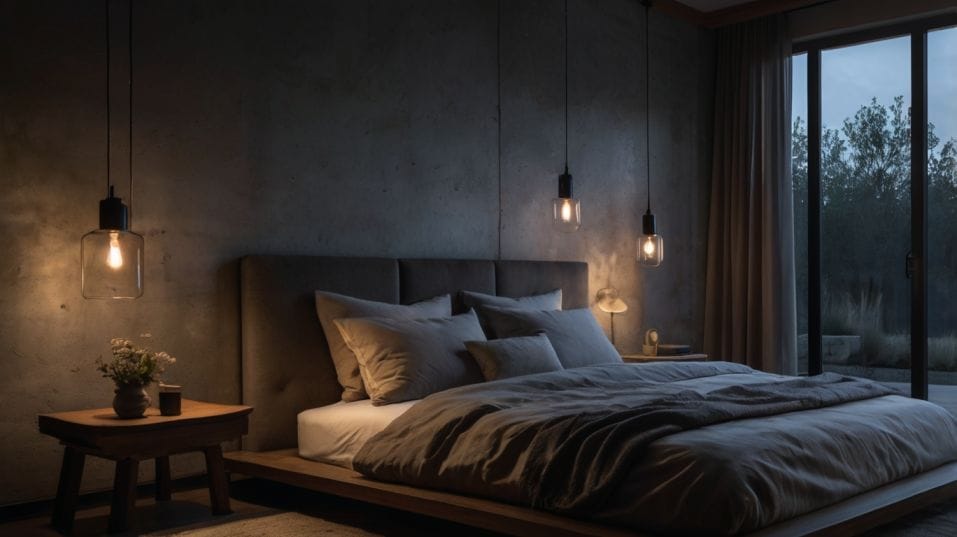Could Your Sleep Issues Be a Sign of ADHD?
Tired of sleep tips that don’t work? Discover how ADHD impacts your rest—and how to build a brain-friendly routine that actually works.

Why do you keep waking up exhausted even after a full night in bed? If your sleep always feels off—delayed, restless, or wired when it should be winding down—your brain might be working against typical sleep advice.
For some people, especially those with ADHD, common fixes just don’t cut it. The key isn’t more discipline—it’s a different approach. Here’s how to reset your sleep by working with your brain, not fighting it.
What ADHD Has to Do With Sleep
First, let’s clear something up. ADHD isn’t just about struggling to pay attention or being hyperactive.
It affects executive function—your brain’s internal management system for focus, emotional regulation, task initiation, time awareness, and—you guessed it—sleep-wake cycles.
If you've always had trouble falling asleep, staying asleep, or waking up without feeling like you’ve been hit by a truck, ADHD might be part of the reason.
For many people, the connection between ADHD and poor sleep goes completely undiagnosed because the signs don’t always show up as hyperactivity or forgetfulness.
Instead, it can look like chronic insomnia, restless nights, or feeling constantly drained despite eight hours in bed.

Melatonin and Circadian Delays
Here’s the science: research shows that people with ADHD experience delays in the release of melatonin, the hormone that cues your body to start winding down.
Your brain’s internal clock—its circadian rhythm—can be off by 30, 60, even 90 minutes compared to the neurotypical average. So when the world is telling you to sleep at 10 p.m., your body might not be ready until well after midnight.
Worse, your brain may be running on overdrive all day, which makes it harder to transition into rest mode at night. This “tired but wired” state is one of the most overlooked signs that your nervous system is stuck in high gear.
It’s Not Just Insomnia—It’s Executive Dysfunction
One of ADHD’s sneakier traits is time blindness—your brain doesn’t accurately register the passing of time.
That’s why you sit down to scroll Instagram “for a few minutes” and suddenly it’s 1 a.m. Or why you keep pushing off bedtime because your brain is chasing novelty, dopamine, or some unfinished task.
Combine that with emotional regulation issues (like anxiety or rumination), and you’ve got a recipe for late-night spirals that have nothing to do with screens or poor discipline.
This isn’t a matter of bad habits—it’s a neurological mismatch between how your brain handles stimulation and how sleep naturally happens.
How to Work With Your Brain (Not Against It)
The good news? You can train your brain into a better sleep groove—once you stop following advice made for people who aren’t dealing with ADHD.
Anchor Your Wake Time
Start by locking in your wake-up time. Yes, even on weekends. This one habit anchors your body clock, which is already prone to drifting off-course.
Consistent wake times are more effective than early bedtimes when it comes to regulating sleep patterns. Don’t try to sleep in to "catch up"—it just delays your melatonin release even more.
Build a Wind-Down Routine That Stimulates Calm
Next: tackle overstimulation before bed. ADHD brains don’t “shut off” easily.
Instead of lying in the dark hoping for sleep to magically happen, create a structured wind-down ritual that gives your brain something to chew on while nudging it toward rest.
This could be listening to a calm podcast while you stretch, doing a repetitive task like organizing your bag for tomorrow, or writing a quick journal entry that offloads your brain chatter.
Move Your Body, Reset Your Brain
Physical movement during the day can also reset your brain’s sleep drive. People with ADHD often have underactive dopamine systems.
Moderate-intensity exercise (like walking, cycling, or bodyweight workouts) boosts dopamine and helps your nervous system unwind later.
Use Light as a Tool
Light exposure is another underused tool. Try getting outside within 30–60 minutes of waking, even if it’s cloudy.
Natural light syncs your circadian rhythm and helps your brain release melatonin earlier that evening. Indoors all day? Consider a 10,000-lux light therapy box in the morning to simulate sunlight.
Time Your Caffeine Like a Pro
Let’s talk caffeine. Many people with ADHD use it to self-regulate, and in small, strategic doses it can actually help calm the brain.
But timing is everything. Cut it off by noon—or earlier. Late-day caffeine, even if you don’t “feel it,” can silently disrupt your sleep cycle.
Follow a Schedule, Not a Feeling
One last thing: don't wait for sleepiness to signal bedtime. If you have ADHD, your “sleep signals” may be muted. Instead, stick to a wind-down schedule.
Dim the lights, change your environment, and follow your ritual—whether you feel tired or not. Sleep pressure builds gradually with consistency.
The Payoff: Sleep That Actually Works for You
When you finally start syncing your sleep habits with how your brain is wired, the benefits hit hard. Focus sharpens. Emotional regulation improves. You stop walking through the day half-asleep and start moving with real clarity and energy.
Suddenly, you’re not just “trying to sleep better”—you’re actually living better. You recover faster, think more clearly, and feel like your time is your own again.
This isn’t about hacking your way into superhuman productivity. It’s about finally stepping into a rhythm that supports your life, not drags you through it.
Final Thoughts
If your sleep has always felt off—delayed, chaotic, frustrating—ADHD could be the reason. Instead of trying to squeeze your brain into a “normal” sleep routine, design one that fits the way your brain works.
Start small. Lock in your wake-up time. Step into daylight early. Ditch the guilt about being “bad at sleep” and focus on creating structure your brain can follow. Tonight, give your sleep the space it deserves. Not for perfection, but for progress.
Because once your sleep aligns with your biology, everything else—energy, mood, focus—starts to shift too. Don’t wait for the ideal routine. Start now. Your brain will thank you tomorrow.




